6 Things We Do That Can Make Our Partner Feel Uncomfortable
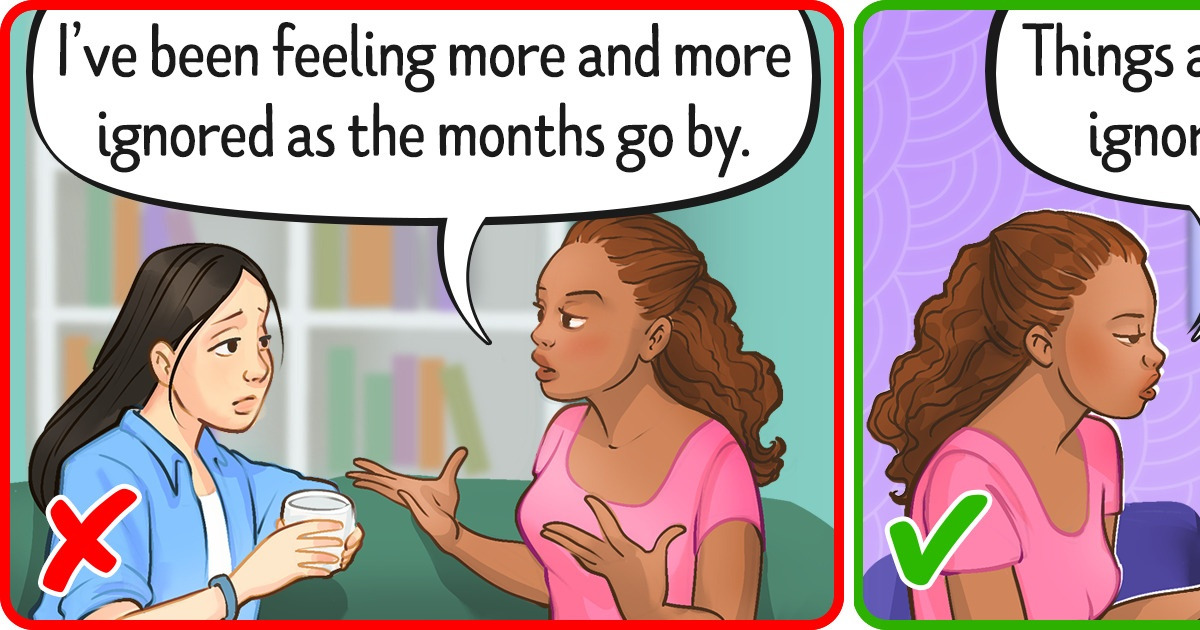
Relationships are a big and beautiful part of our lives. Being in love seems to take us to a world above our own, where nothing matters more than the person you enjoy being with. That said, it’s also tricky to be able to create a stable relationship with a person who can be completely different from you.
5-Minute Crafts will tell you about some behaviors worth stopping for the well-being of your relationship.
1. Taking your partner for granted

As relationships grow, mature, and extend over time, there can be a tendency to start taking your partner for granted. After all, they’ve been there for you for the longest time and it’s an easy trap to assume they’ll never leave. This can lead to a loss of some of the nice gestures you did for each other at the beginning, which made you both happy and fall for one another.
- Try to imagine your day-to-day life without your partner and really reflect on how different it would be without them. This can make it so you appreciate the person next to you and understand how important they are in your life.
2. Not talking enough
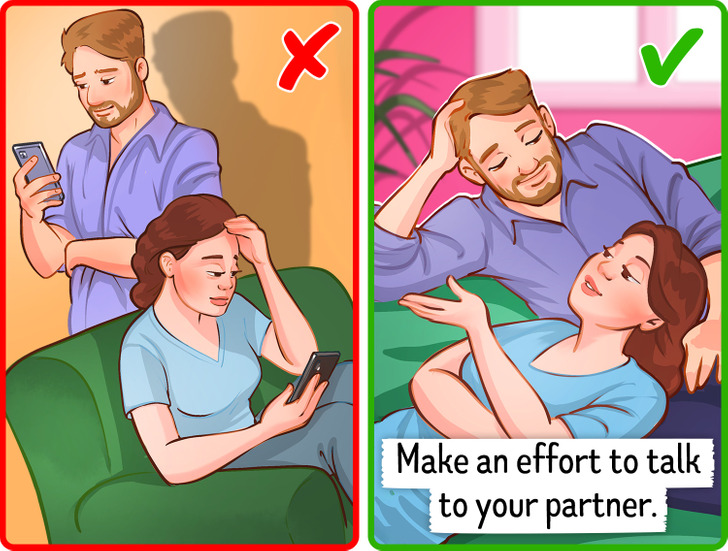
It is common to talk a lot at the beginning of relationships when you’re getting to know each other. It was easy to cuddle up somewhere or talk on the phone for hours and hours about all subjects and opinions on life. It’s natural that this slows down over time, as there are only so many things one can talk about without getting repetitive.
- One of the building blocks of relationships is communication, so it is important to always talk to each other, open and honestly, about all feelings and occurrences of life. Some tips for great communication are giving your full attention, making eye contact, trying to be constructive, staying positive, and prioritizing a goal that’s not just being right.
3. Complaining to other people about your relationship and not expressing it to your partner
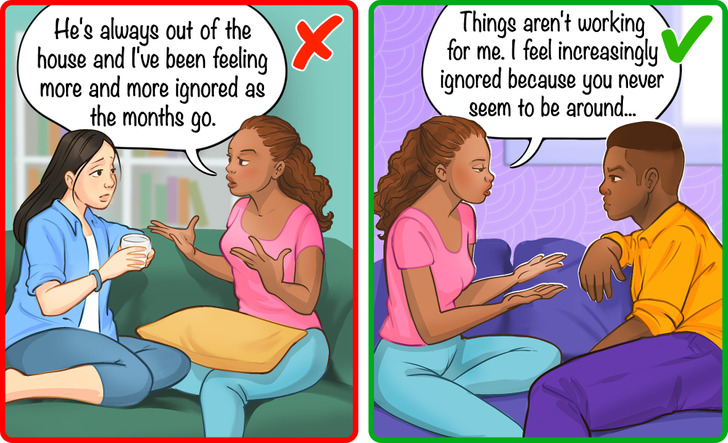
As relationships progress, feelings cool down on both ends of the spectrum — maybe you don’t say “I love you” as much, or you no longer explain that you’re angry about something. This can be because these feelings now seem boring, and there’s no longer a need to share them. However, there’s a tendency to complain to people who are not part of your relationship instead of just telling your partner what you’re feeling.
- Telling your partner how you feel is important since it will allow them to change a behavior that bothers you. Don’t be afraid of telling them all about it, and if you feel it could bother them, share your thoughts with kindness and at a proper time.
4. Ignoring your loved one

No one is in a relationship in order to be ignored, and not being paid attention to can sometimes feel worse than having someone angry at you. Even if you just had a fight about something, the silent treatment is never the answer.
- If this is happening, there should be an effort to reconnect on both parts. If that effort is there, it can mean that the relationship can still go strong after this. A weekend getaway is a great opportunity to do something different, being alone with your partner and not ignoring them.
5. Passive agressiveness
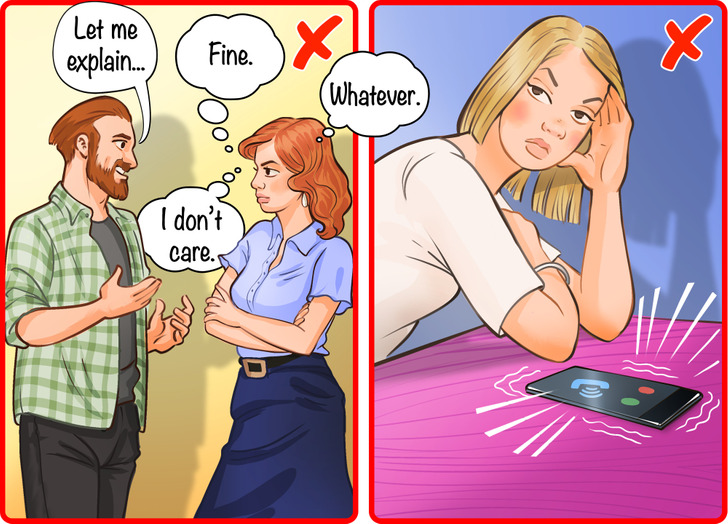
Passive aggressiveness can appear in a relationship in several ways, like “forgetting” to do something for your partner that you never wanted to do and didn’t even try to make an effort to do, or just agreeing to something with no intention of following up.
- Always take the time to discuss things with your partner, tell them you don’t want to do something, if you don’t agree with something, etc. All that is better than just pretending to listen or care and never doing it.
6. Jealousy
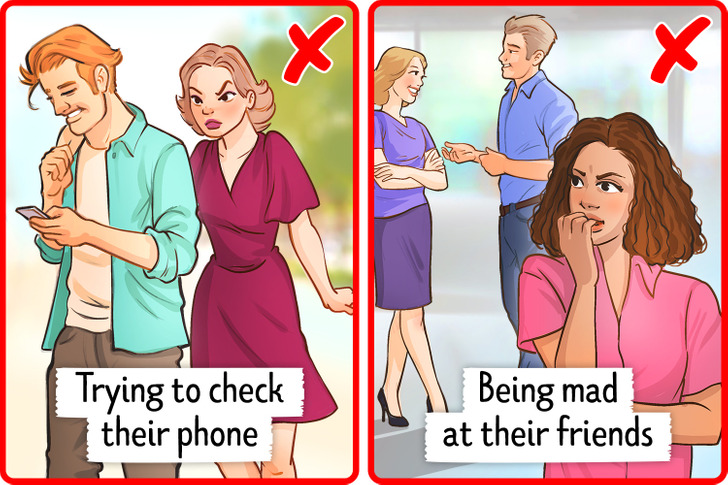
Having jealous thoughts is normal, and they can even be interpreted as a form of love when they’re not too frequent and are healthy. But great displays of jealousy, like being mad they’re talking on the phone with someone else, are never beneficial to a relationship. The feeling of jealousy comes more often from our own internalized thoughts and insecurities than from actual actions from our partner, and it can break a relationship by causing distrust, resentment, and defensiveness towards our partner.
- If you feel jealous often, try to look inside yourself and see where the feelings come from. Are they caused by a situation that has happened in the past? If so, thinking about those events over can avoid overreactions in the present day. Besides this, try not to act out toward your partner, and talk things over; a friend can help just by hearing you out.